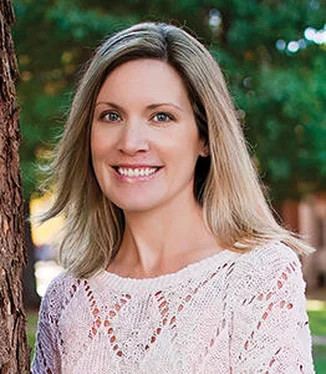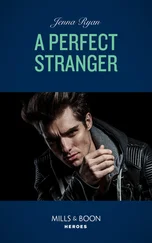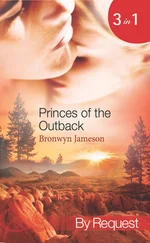“A phone number? Her cell?” he asked, his gaze piercing my own.
“She left her last phone in Boston,” I said. “When she broke it off with her fiancé. Not sure about the rest.”
“Okay, how about email or social media accounts?”
I shook my head. “Not that I know of. She doesn’t have a computer. Or, like I said, a cell phone. I don’t think she wanted her ex to be able to find her.” Emmy had also spent four years overseas, off the grid. Maybe she’d grown accustomed to it, preferred it to the way most of us documented and framed every aspect of our lives online.
But he raised an eyebrow at this, like he couldn’t believe it.
“I don’t have any social media accounts, either,” I said, crossing my arms. “And I bet neither do you.” Because there was too much danger for someone like him, and someone like me, to be out there. Too much exposure.
“Because you’re a teacher?” he asked.
“Yes,” I said, the easiest response.
“Okay, do you have any pictures of your roommate?”
I didn’t. Back when Emmy and I met, eight years earlier, the cell phone dependability had only just begun. We took photos with disposable cameras or with purchased rolls of film when the moment was big enough – got them printed at the drugstore, put them in boxes, and lost them in moves.
And now the few I took I sent to my mother and my sister – which felt slightly defensive even to me. Nothing more than a way to convince us all: See the way the moon shines through the trees of my front yard? I’m happy here. I did not send anything of real consequence.
“How long have you known her?”
This answer could’ve been either eight years or, if adding time, the actual time we’d spent together, nine months. “We were roommates for a while after college. We reconnected this summer.”
“Did she leave behind a purse? A car?”
“She drives a brown station wagon, but I don’t know if she owns it.” That was generous. I knew she didn’t. I hadn’t owned a car when I’d moved, either. Emmy had picked me up at the airport, and I had shipped whatever couldn’t fit in my luggage. I’d bought my first car a few days later, brushing aside every extra mentioned, taking the baseline price, and then I had to wait for the model to come.
Emmy let me drive the station wagon until the paperwork went through. It smelled faintly like cigarettes, though Emmy didn’t smoke. You could feel the engine sputter under the cloth seats. The plastic coating of the steering wheel was beginning to fade away. But none of these things mattered or helped.
“Plates?” he asked.
“Not sure.”
“Would you have the registration or insurance or anything else on file?”
I laughed. The idea of Emmy keeping records or files. The idea of Emmy doing anything with a long-term plan. “She wasn’t the type.”
“Wasn’t?”
My expression faltered. Wasn’t that exactly what I was worried about? Why I’d called him? That she was gone. “Not in all the time I’ve known her,” I said.
“Her purse, then?”
“I haven’t seen it.”
“What was she doing the last time you saw her?”
I almost told him about the owls but then stopped. “I was on my way to work Monday,” I said. “She was coming in, I was heading out.”
“Last residence?”
“Not sure. She lived with her fiancé in Boston,” I said.
“His name?” he asked, and I shook my head. He was a jerk, he was dangerous, she was running.
“He worked in finance,” I said. The little Emmy had told me; the little I’d truly asked in response.
He tapped the pencil eraser against the tabletop as his eyes roamed the room. I was giving him bread crumbs, details to sift through, and I knew what he was thinking: None of this will help.
“You have to give me something to work with here, Leah.”
What did I have to show him? “She did two tours in the Peace Corps. Botswana, I think. Moved back to D.C. after that,” I said. There. There she was, that’s where he’d find her paper trail, trace her life forward and back. “She worked in nonprofit, then she came back up to Boston with her fiancé.” I tried to remember what she’d said that night we’d run into each other, through the foggy haze of memory and alcohol. “She was engaged, but it went bad, and that’s when we reconnected.” I didn’t tell him about the circles under her eyes, the unspoken things that only I could see, the way she so obviously needed out.
“Okay,” he said. “I’ll put in some calls to D.C., see if we can’t get a picture. And go from there.”
“She has a boyfriend now,” I added. “Lives nearby. Jim something. He has blond hair to here.” I held my hand to my chin. “Bow-legged. Narrow face. Drove a beige hatchback, needed a new muffler.” Someone, it seemed, who was the polar opposite of the man she’d just left.
He made eye contact, seemed to be smiling to himself. “You’d make a pretty good witness, Leah Stevens.”
I grinned, but I was still worried. Emmy was missing, and Jim was the only person I could associate with her. “He calls here sometimes. Maybe you can trace him that way?”
Kyle’s gaze drifted to my phone on the wall. “You’d need to give us permission to get your phone records.”
“Okay, you have it,” I said. The phone line was mostly for Emmy. I used my cell for work and practically everything else. I’d registered the landline only because Emmy needed one.
“Honestly, it would be easier if you pulled them yourself. Call the phone company, ask them to send you the most recent bill, and we can at least check the public numbers. We’d need to get a subpoena for anything private.”
“But if I get you the bill, you’ll look into it?”
He ran a hand through his short hair. “Sure,” he said. “I’ll look into it.”
“Okay,” I said, letting out a slow exhale. “Thank you.”
He leaned back in his chair, folded his hands on the table. “Anything else you want to share about Davis Cobb?”
Quid pro quo, this was how it went in my profession before, too. You cannot take without a give.
I grabbed the pencil from his hand. Twisted the paper to face me. Jotted down an email address that began with the sender name TeachingLeahStevens . “He sends me emails from this account sometimes,” I said. “At school. I delete them.” I shrugged. “Honestly, they’re not that bad.”
He kept his expression even, waited a beat before responding, processing the information. “Thanks. We’ll see what we can get. Next time it would help if you don’t delete them.”
I nodded.
He looked at the page again before sliding it into a folder, then placed his hands flat on the table. “He made up this email address specifically to target you, Leah. Did you ever report this? Or the emails themselves?”
“No. Honestly, they seemed harmless.”
In hindsight, that wasn’t entirely true. They just seemed like everything else. My first boss once told me not to include a head shot with my story, and I’d been insulted. I’d thought it was because she thought it might detract from the story – that I looked too young, too happy, to write what I wrote. That people would not take me seriously.
But I thank her every day. Really, she was saving me from the world that hid behind computer screens, linking my name to a face. Their words shouted into a void instead. The things the anonymous would say if they disagreed, the things they’d imply because of my name alone. It all sort of rolled off, over time, becoming background noise.
The emails I had been receiving here were no worse, really.
No, I thought. The problem was with me. I had become effectively desensitized to the danger of words.
Читать дальше












